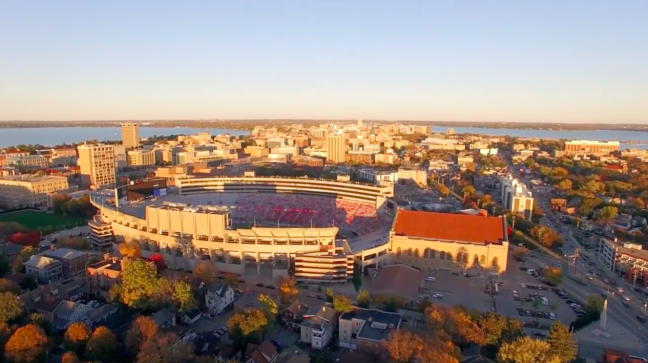A recent review of the University of Wisconsin Department of Intercollegiate Athletics recognized UW’s successes in health and safety-related policies and reported a desire among student-athletes for improved mental health services, according to a press release from UW Athletics.
UW Director of Athletics Barry Alvarez requested the review last February, shortly after former U.S. Gymnastics team doctor Larry Nassar plead guilty to sexually assaulting multiple gymnasts during medical appointments at Michigan State University.
The review included both group and individual in-person interviews and involved current student-athletes, coaches, athletic trainers, doctors, UW Athletics senior staff and the head of every support unit in the department, according to the press release. It was conducted under UW professor of Law Emeritus and Special Assistant to the Athletic Director Walter Dickey.
The review was presented to the UW System Board of Regents at a meeting on Oct. 4 and again at the UW Athletic Board meeting on Oct. 5. According to the press release, some of the recommendations have, as a result of the review, already been implemented, while others will be addressed in the near future.
Nearly 700 student-athletes and 400 UW Athletics staff members were invited to participate in a health and safety survey.
UW renews participation in AAU sexual misconduct, assault campus climate survey
Senior Associate Athletic Director Justin Doherty said the goal of the review was to understand the department’s current health and safety policies and procedures and determine what could be improved.
“It’s important to look at this review as a snapshot in time,” Doherty said. “The review was initiated back in February and the conversations that went on were intended to review where the Athletic Department is at right now.”
Doherty discussed the three primary areas of the review: physical environments, health care — including mental health, communication and reporting. Doherty said numerous recommendations for improvement were made based off the results of the review.
Doherty, and Dickey in his letter to Alvarez regarding the procedure and findings of the review said a common observation among staff and student-athletes was the need for greater monitoring of access to facilities.
To this end, the UW Police Department agreed to audit athletic facilities and to make recommendations about how to improve safety for users of these facilities, Doherty said.
UHS reflects on impact of 24/7 online mental health resource
Doherty said mental health and available mental health services were also pressing topics, and that based on the review, appropriate and additional staffing would be improved upon.
According to Dickey’s letter, the review “revealed that there is a desire for improved mental health services among student-athletes, just as there appears to be a similar need across the student body as a whole.”
The Athletic Department will conduct a survey of staff and students to determine what further support can be provided, according to the letter.
Communication and reporting of wrongdoing was the final area of review. In his letter to the Athletic Director, Dickey said that while UW student-athletes are not hesitant to report health and safety concerns, there appeared to be confusion among students as to whom they should report any concerns to.
“We are going to do everything we can to improve communication-related to reporting health and safety concerns,” Doherty said.
The review recommended the UW Athletic Department continue their efforts in educating staff and students about reporting health and safety concerns, and that a concerted effort is made to educate student-athletes and staff regarding sexual assault and harassment prevention.
Peter Miller, UW Athletic Board Chair and UW professor of educational leadership and policy analysis, described the review as a “broad enterprise,” one which seemed a bit daunting at first with respect to the sheer amount of student-athletes, staff and members of each department given the high number of health and safety that could still occur.
“Our effort was not to guarantee a perfect set of recommendations for all situations,” Miller said. “Our effort was to figure out sound policies and procedures to maximize the safety of students and staff.”
Doherty said while the review was prompted in part by Nassar’s conviction at Michigan State, the UW Athletic Department tries to stay proactive and aware of collegiate and national concerns regarding health and safety.
UW is the only Big Ten school to have conducted a review of this manner since the events that occurred at Michigan State, but that the review and its recommendations are part of an ongoing process and evaluation, Doherty said.
“This is not the kind of thing where you do it and then you’re done,” Doherty said. “You do it and you keep monitoring, recommending, and hope that this helps to open up lines of communication between staff and student.”
Joe Parisi announces increased funds for mental health, addiction services in 2019
The Big Ten conference, at large is concerned with the environment around health and safety, Miller said.
UW, among other schools, is aware that episodes of violence occur in the broader public, and that there have been a number of troubling things happen in athletics and in the world, Miller said.
“The environment [around health and safety] is one athletics has to be closely attuned to,” Miller said.














